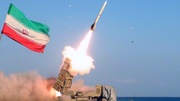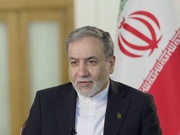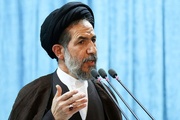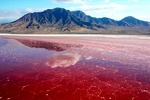In a ceremony on Sunday morning at the venue of Japan's embassy in Tehran, the Government of Japan and the United Nations Development Programme (UNDP) signed an exchange of notes to implement the project.

The grant aid was provided with the title of Project for Developing Conservation Systems of Wetlands in Lake Urmia and Other Wetlands including their Surrounding Communities.
The allocated budget size is 690 million yen and the project site is Lake Urmia in the provinces of East Azarbaijan and West Azarbaijan, Shadegan wetland in Khuzestan province, Parishan wetland in Fars province, and Anzali wetlands in Gilan province.
The project will develop irrigation systems that respond appropriately to climate change and install water management systems. It would also create sustainable industries such as ecotourism for environmental protection and economic development in the areas surrounding these wetlands.
During the signing ceremony, Japanese Ambassador to Tehran Tsukada Tamaki, Deputy Resident Representative for UNDP Gullbahor Nematova, and the representative of Iran's Department of Environment (DOE) delivered separate speeches.

"Over the past ten years, the unwavering support from the People and the Government of Japan has positively impacted agricultural productivity and enhanced livelihoods in target communities. In the next four years, we will continue promoting innovative, water-efficient agricultural practices, while emphasizing scaling up for a better future for all,” Nematova said.
Speaking at the ceremony, the ambassador of Japan underlined that Iran has 26 valuable wetlands listed under the Ramsar Convention, including Lake Urmia, adding that these wetlands, which are home to diverse species and migratory birds, must be conserved in cooperation with the international community.

Japan and Iran have enjoyed friendly relations over centuries and millenia. The Government of Japan would like to continue expanding this relationship into the future. Today’s ceremony is the testament to this aspiration and commitment, Tamaki said.
"In terms of our governmental relationship and cooperation, environmental conservation has been the key and central theme where we have brought to bear our efforts and resources," the Japanese envoy stressed.
"The Government of Japan has decided to provide 690 million JPY (4.5 million USD) to the Islamic Republic of Iran for the implementation of the project for developing the conservation system of the wetlands in Lake Urmia and other areas, including their surrounding communities. This will be implemented primarily by the United Nations Development Program in cooperation with the Food and Agriculture Organization," he added.
"Over the past 10 years, our government, through our development arm JICA, has provided support for the conservation of Lake Urmia through partnerships with UNDP and FAO. To further this, we will continue partnering with UNDP and FAO, setting up water management systems for Lake Urmia building on previously developed water analysis models established by FAO and best practices created by UNDP. These systems aim to enhance irrigation facilities for more efficient use of agricultural water. The project will also address the issue of uncontrolled water withdrawal and foster sustainable industries, such as eco-tourism," the senior Japanese diplomat underlined.
"Another important feature of this project is its holistic approach - one that integrates environmental protection with sustainable community development, so that the benefits accrue not just to the immediate wetlands but also to their surrounding communities for generations to come. Today’s signing ceremony is not just a consummation of our hard work – that of course is important in its own right; but this is also a symbol of hope and shared responsibility among all of us gathered here," he concluded.

Iran has spent heavily on infrastructure projects in recent years to prevent Lake Urmia, Iran’s largest salt lake, from drying up.
Lake Urmia, located in the northwest of Iran, was once the most extensive permanent hypersaline lake in the world.
MNA/























Your Comment